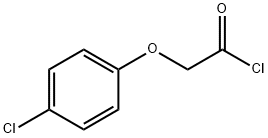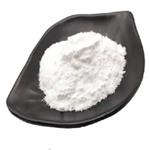Pharmacological action
Meclofenoxate hydrochloride(MecloCl) [CAS,NO:51-68-3], an ester of dimethylethanolamine (DMAE) and 4-chlorophenoxyacetic acid (pCPA), has been shown to improve memory, have a mentally stimulating effect, and improve general cognition.
Meclofenoxate hydrochloride is a psychostimulant in the nootropic agent group available in capsule and tablet formulations approved for traumatic cataphora, alcoholic poisoning, anoxia neonatorum, and children's enuresis in China. Although these 2 generic formulations are marketed in China, information regarding their pharmacokinetics and bioequivalence in humans has not been published. Meclofenoxate hydrochloride appears to increase the consolidation of new information into long-term memory. Meclofenoxate does not affect other aspects of remembering. Meclofenoxate is found that significantly more of the subjects receiving meclofenoxate reportes an increased level of mental alertness.
Uses
The applications of is Meclofenoxate hydrochloride:
- Memory decline through aging
- Dementia and Alzheimer’s (clinically)
- Brain damage or injuries
- Alcohol or drug abuse symptoms and effects
- Promote the metabolism of brain
Description
Meclofenoxate hydrochloride is a cholinergic nootropic used as a dietary supplement and drug in the treatment of symptoms of senile dementia and Alzheimer's disease.
Chemical Properties
White Solid
Uses
Cerebral stimulant;Acetylcholine precursor
Uses
Meclofenoxate is a cerebral stimulant. Also, Meclofenoxate is used as plant growth regulator.
Mechanism of action
Meclofenoxate hydrochloride is a cholinergic drug that has been used to treat bowel diseases. It inhibits the enzyme acetylcholinesterase, which breaks down acetylcholine in the body and thus increases the amount of acetylcholine available to stimulate muscle contractions. Meclofenoxate hydrochloride also affects the production of other enzymes, such as those involved in energy metabolism.
Side effects
Possible side effects of meclofenoxate include insomnia, dizziness, restlessness, muscle tremors, depression, nausea, muscle tension, and headache, which are generally rare; these side effects may be associated with overdose of the medication and may indicate the need for a reduction in the dosage of the medication.
Safety Profile
Poison by intravenous route.Moderately toxic by ingestion and intraperitoneal routes.When heated to decomposition it emits very toxic fumes ofCl??, NOx, and HCl.






